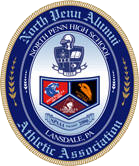GERSON “Gus” ROSENBERG, Ph.D.
North Penn High School 1962
C. McCollister Evarts, M.D. Professor in Artificial Organs
Professor of Surgery and Bioengineering
Chief, Division of Artificial Organs
Co-Director of Penn State Institute for Biomedical Engineering
Penn State College of Medicine
The principal investigator of the electric total artificial heart and heart assist project at the Penn State Milton S. Hershey Medical Center.
Part of the team that developed the Penn State Pneumatic Heart, one of the first air-driven artificial heart and assist models for temporary use in humans as a bridge to a transplant.
Developed a mock circulatory system that is used to evaluate blood pumps and later was established as a standard mock system by the National Institutes of Health.
Shares a patent on an artificial heart and has submitted four other patents for approval.
Has written over 300 book chapters, abstracts and journal articles on artificial organs, specifically heart and heart assist devices.
Outstanding Alumnus Pennsylvania State University, Ogontz Campus, 1982
Founding Fellow of the American Institute of Medicine and Biological Engineering (AIMBE), 1992
Member , Sigma Xi, ASAIO, Biomaterials society, Life member ASME
Engineer of the Year by Design News Magazine, 2002
Alumni Fellow, Penn State Alumni Association, 2003
President, American Society for Artificial Internal Organs (ASAIO), 2004-2005
B.S., Pennsylvania State University, Mechanical Engineering, 1970
M.S., Pennsylvania State University, Mechanical Engineering, 1972
Ph.D., Pennsylvania State University, Medical Engineering, 1975
Post Doctoral Scholar, Pennsylvania State University, College of Engineering, 1975-1976
INDUCTED 2012



